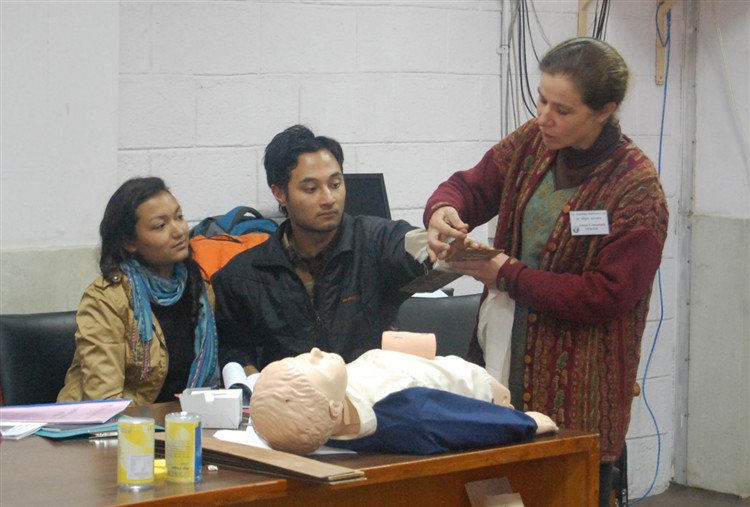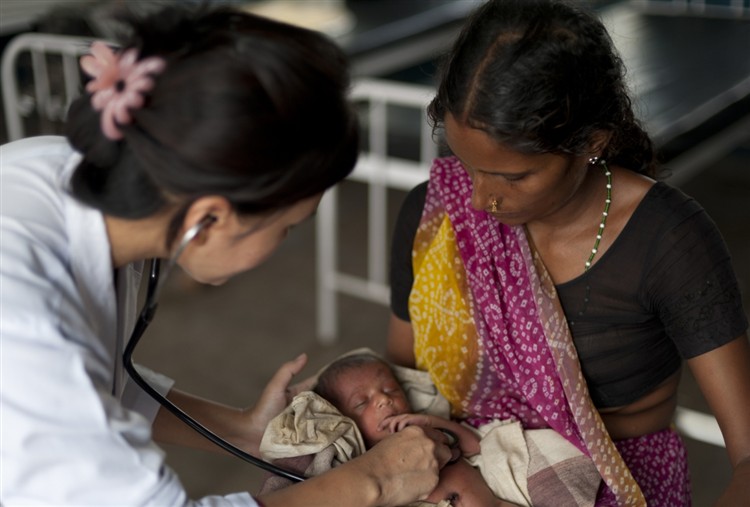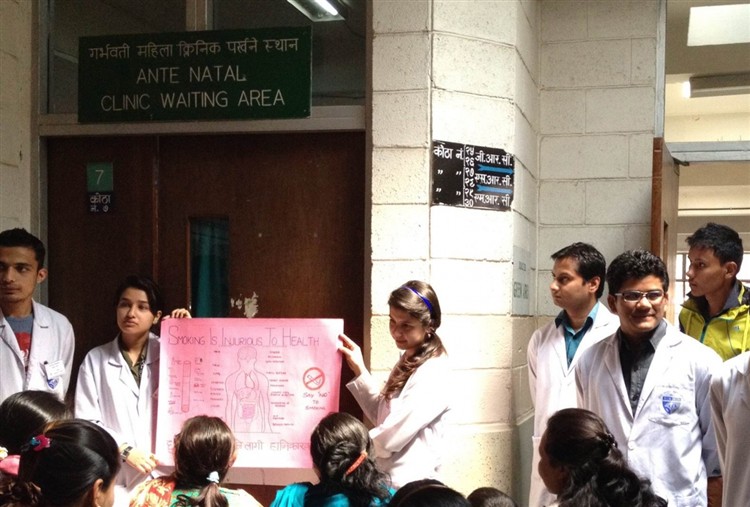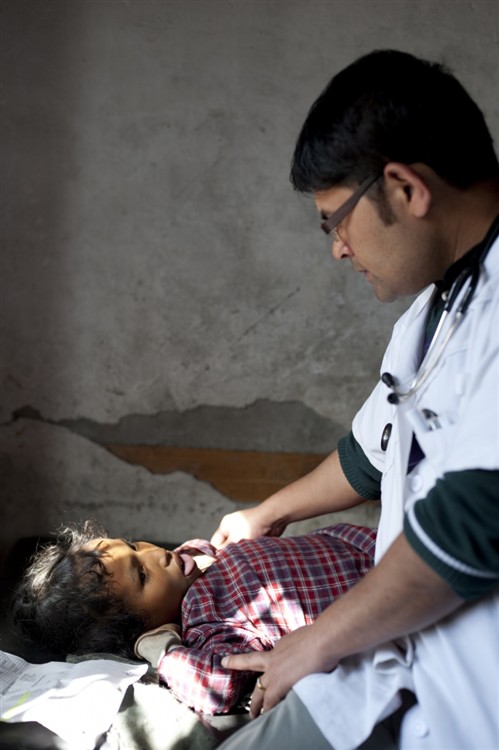|
Revolutionising medicine in rural Nepal
Changing the way doctors see their patients and patients see themselves
written by Vickey Casey, writing intern at BMS World Mission
 There are no experienced doctors in most rural Nepalese hospitals. Without the access to General Practitioners, the rural poor can either scrape together what money they have for a private doctor in Kathmandu or die in their homes. Limited access to adequate and affordable health care, poor hospital staff relationships and little to no palliative care are issues Katrina Butterworth (previously a member of Park Baptist Church in Great Yarmouth), a doctor with BMS World Mission sponsored by Baptist Insurance, is working to address through teaching, research and advocacy There are no experienced doctors in most rural Nepalese hospitals. Without the access to General Practitioners, the rural poor can either scrape together what money they have for a private doctor in Kathmandu or die in their homes. Limited access to adequate and affordable health care, poor hospital staff relationships and little to no palliative care are issues Katrina Butterworth (previously a member of Park Baptist Church in Great Yarmouth), a doctor with BMS World Mission sponsored by Baptist Insurance, is working to address through teaching, research and advocacy
picture right shows Katrina teaching first aid to volunteers
Katrina recounts the story of an elderly woman who was diagnosed with cancer by small clinics in her village and left in pain to die at home. “She was in agony and nobody would go to her room because it smelled so bad.” Katrina’s colleague, a surgeon, was holding a seminar on palliative care when he was asked to see her. This colleague diagnosed her with gangrene in her leg and performed the necessary operations to ease her pain and allow her to end her time in peace. This is a testament to the need for hospitals run by experienced GPs in Rural Nepal. “A lot of it is access, not just physical access but patients and their families deciding whether it’s worth coming to the hospital or not,” Katrina says
 GPs are the only doctors who are qualified to work in rural hospitals. They are trained to perform emergency surgery and provide inpatient and outpatient care. Until April, GPs had few reasons to work in rural villages. Thanks to Katrina and her team, who have been advocating for more government GP positions since 2006, 22 new posts have been created. Unfortunately, there is still a struggle to attract doctors to these remote places GPs are the only doctors who are qualified to work in rural hospitals. They are trained to perform emergency surgery and provide inpatient and outpatient care. Until April, GPs had few reasons to work in rural villages. Thanks to Katrina and her team, who have been advocating for more government GP positions since 2006, 22 new posts have been created. Unfortunately, there is still a struggle to attract doctors to these remote places
One drawback to being a government GP is the prospect of being moved. GPs are given free accommodation and pensions but they have no say over which rural village they are sent to or how long they will be staying there. Thankfully, Katrina is working with senior GPs within the government, who have experienced these problems and are advocating for more communication between those making the decisions and the GPs
 In addition to her clinic work and advocacy, Katrina teaches medical students. Currently she is conducting two research projects: one focusing on palliative care and another to improve hospital staff relations In addition to her clinic work and advocacy, Katrina teaches medical students. Currently she is conducting two research projects: one focusing on palliative care and another to improve hospital staff relations
It is often the case that terminally ill patients are either left to die or treated without care until they die. “Patients dying of cancer are either ignored or aggressively treated,” says Katrina, “I want students to see people as humans and deal with the whole person, not just the disease.” Katrina wants to reintroduce the human factor to medicine in Nepal. To do this, her students are given journals and asked to work with a dying patient. They are then asked to document their experience as a member of the family, changing the way they work with the people who will be in their care
 Another project requires prospective doctors to spend a week working as nurses. During her time in Nepal, Katrina observed bad relations between doctors and nurses causing patients to recovery slowly. Katrina has decided to change this trend by having her students spend a week in the nurses’ shoes; learning their jobs and performing their duties. Katrina hopes that her students will keep these experiences close as they graduate and begin working Another project requires prospective doctors to spend a week working as nurses. During her time in Nepal, Katrina observed bad relations between doctors and nurses causing patients to recovery slowly. Katrina has decided to change this trend by having her students spend a week in the nurses’ shoes; learning their jobs and performing their duties. Katrina hopes that her students will keep these experiences close as they graduate and begin working
“My prayer is that we don’t lose energy, we maintain our motivation and that things will change so there will be hope for the people”
article from BMS World Mission website and used with permission
http://www.bmsworldmission.org/news-blogs/archive/revolutionising-medicine-rural-nepal
|
|
|
|